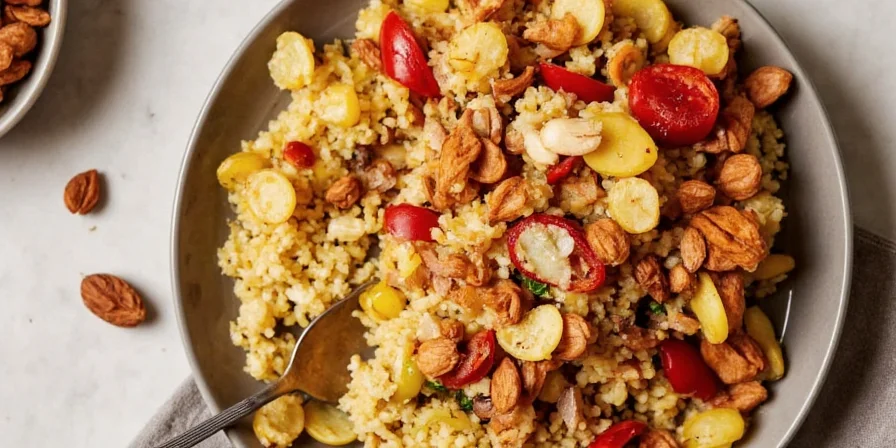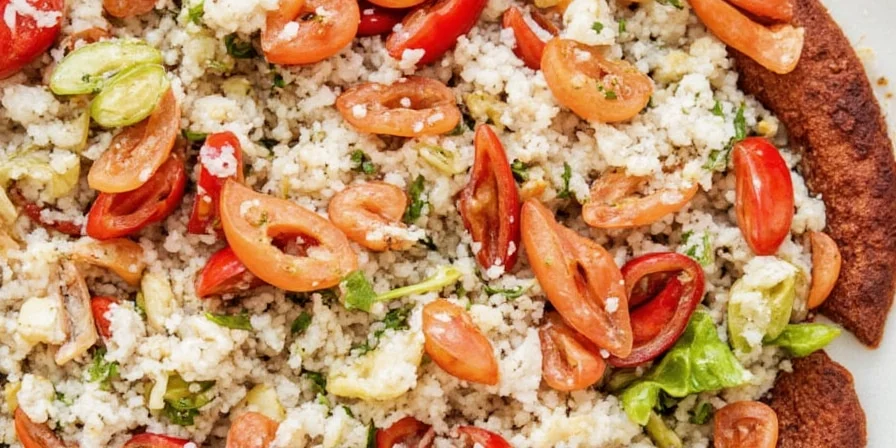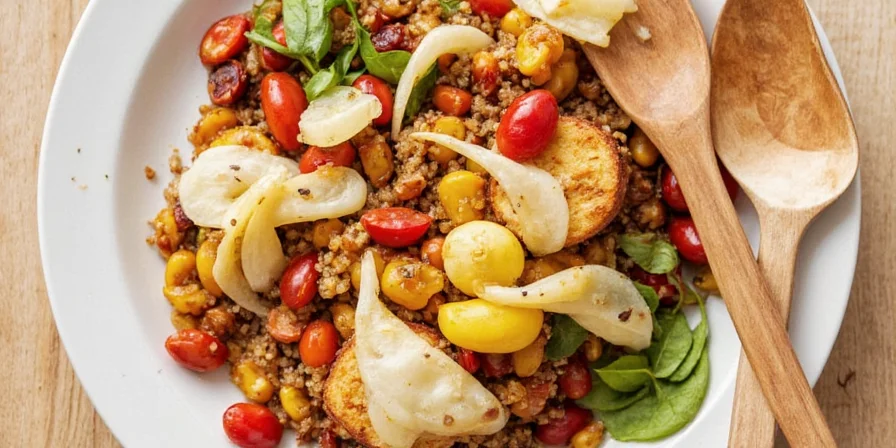Spice It Up: 7 Surprising Ways the Greek Diet Makes You Want to Dine Like a God (or Goddess)
Table of Contents
- Welcome to the Land of Gods, Olives, and Herbs
- Top 7 Spices That Define the Greek Diet
- Why These Spices Are Superheroes in Your Pantry
- Pro Tips: How to Cook Like a Real Greek Grandma
- The Ultimate Spice Pairings for Maximum Flavor Punch
- Spice Showdown: Mediterranean vs. Global Flavors
- Conclusion: Why Greek Spices Deserve a Prime Spot in Your Kitchen
Welcome to the Land of Gods, Olives, and Herbs
If you’ve ever eaten at a Greek restaurant and wondered why your mouth feels like it just joined a symphony — congratulations! You've been blessed by the ancient culinary wisdom of the Hellenic world.
The Greek diet, part of the larger Mediterranean diet, isn’t just about fresh vegetables and grilled meats — it’s also about spices that pack flavor and health benefits into every bite. So grab your feta cheese and let’s dive into how these aromatic heroes shape one of the world's most celebrated cuisines.
Top 7 Spices That Define the Greek Diet
You might think Greek food is all about olives and yogurt, but the secret weapon is hiding in the spice rack. Here are the top seven spices you'll find in every authentic Greek kitchen:
- Oregano: The king of Greek herbs, used on everything from salads to souvlaki.
- Dill: Fresh and feathery, often found in fish dishes and tzatziki sauce.
- Thyme: Earthy and slightly minty, great for roasting meats or veggies.
- Sage: Often used in stuffing or with fatty meats to cut through richness.
- Cumin: Adds a warm, earthy note to stews and lentil dishes.
- Paprika: Not always obvious, but used subtly for color and mild heat.
- Bay Leaves: Essential for slow-cooked dishes and rice pilafs.

Bonus points if you can pronounce them all in Greek!
Why These Spices Are Superheroes in Your Pantry
It’s not just about taste — these spices bring serious health perks to the table. Let’s take a peek:
| Spice | Flavor Profile | Health Benefits |
|---|---|---|
| Oregano | Strong, earthy, peppery | Antioxidant-rich, antimicrobial |
| Dill | Fresh, grassy, anise-like | Aids digestion, rich in calcium |
| Thyme | Earthy, minty, lemony | Boosts immunity, antibacterial |
| Sage | Woody, savory, slightly bitter | Improves memory, anti-inflammatory |
| Cumin | Warm, nutty, spicy | Supports digestion, iron-rich |
| Paprika | Mildly sweet, smoky, vibrant | Rich in vitamin A, improves circulation |
| Bay Leaf | Floral, herbal, slightly bitter | Relieves inflammation, supports heart health |

Who knew adding a pinch could add years?
Pro Tips: How to Cook Like a Real Greek Grandma
Want to impress your friends with authentic Greek flavors? Here are five easy tricks even yiayia would approve of:
- Toast whole spices lightly before grinding — this unlocks their full aroma. Just don’t burn them — nobody likes bitter oregano.
- Add dried herbs early, but fresh herbs at the end of cooking. Timing is everything when coaxing out flavor.
- Infuse olive oil with garlic and herbs — drizzle over bread or pasta for instant gourmet status.
- Use lemon juice and vinegar as flavor amplifiers — they balance rich and fatty foods beautifully.
- Don’t skimp on salt, but pair it with herbs for depth, not just saltiness.

Bonus tip: Always stir clockwise while whispering “opa!” under your breath.
The Ultimate Spice Pairings for Maximum Flavor Punch
Here’s how the Greeks get so much flavor without overpowering anything:
- Oregano + Lemon + Garlic = Perfect for grilled chicken or seafood.
- Dill + Yogurt + Cucumber = Tzatziki magic in three ingredients.
- Thyme + Rosemary + Olive Oil = Drizzle over roasted potatoes or focaccia.
- Sage + Pork + Apples = A sweet and savory combo that will make your jaw drop.
- Cumin + Lentils + Bay Leaf = Make a hearty stew that tastes like it came from Mount Olympus itself.
Pro hack: Create a custom “Greek spice mix” by blending equal parts oregano, thyme, marjoram, and a pinch of sea salt.
Spice Showdown: Mediterranean vs. Global Flavors
How does the Greek spice lineup stack up against other global cuisines? Take a look below:
| Cuisine | Main Spices | Signature Dish | Unique Trait |
|---|---|---|---|
| Greek | Oregano, dill, thyme, sage | Moussaka, souvlaki | Fresh herbs + olive oil + lemon |
| Indian | Cumin, turmeric, coriander, cardamom | Butter chicken, biryani | Complex spice blends, masalas |
| Mexican | Chili powder, cumin, paprika | Tacos al pastor, mole | Smoky and spicy flavor base |
| Thai | Lemongrass, galangal, chili, kaffir lime | Pad Thai, green curry | Bright acid and heat combo |
| Italian | Basil, oregano, rosemary | Pasta aglio e olio, focaccia | Simple ingredients, bold flavors |

While others may use more complex blends, Greek cuisine proves that less is often more — especially when your ingredients are this good.
Conclusion: Why Greek Spices Deserve a Prime Spot in Your Kitchen
In the grand theater of global cuisine, the Greek diet plays the role of the charming understudy who unexpectedly steals the show. With its humble yet powerful array of spices, it delivers flavor, nutrition, and simplicity in one delicious package.
So whether you're whipping up a quick tzatziki or roasting lamb with fresh oregano and lemon, remember — you’re not just cooking. You’re channeling the spirit of ancient Greece, where food was sacred and flavor was divine.
Now go forth and season like a god.











 浙公网安备
33010002000092号
浙公网安备
33010002000092号 浙B2-20120091-4
浙B2-20120091-4